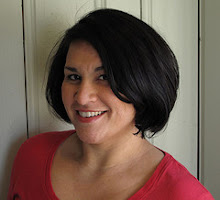
Our Class definition of a Philosopher:*Anyone who sets out to explain the unexplainable is a philosopher, it doesn't matter your age, gender or social standing*
History: I tried to keep the history as fun, light, and quick as possible. Our main thinkers of the week were Plato and Socrates. Socrates said 'The key to good living is clear thinking". We discussed how Greece was a party town and not too many people wanted to look at the deeper meaning of life. Plato and Socrates were big trouble makers and the Greek government want these men to be silent.
Discussion Questions of the Week:
1. How would you explain what philosophy is to someone who has never heard the word?
2. How do you define imagination? How does it feel to be imaginative?
3. How could thinking clearly about certain ideas help you in your life? What ideas are you going to try to understand better?
Activities:
We read and discussed 3 different Emily Dickinson quotes and we started a group reading of "The Little Prince". The biggest hit of the class had to have been Emily Dickinson's poem
I'm Nobody, Who Are You
I'm nobody! Who are you?
Are you nobody, too?
Then there's a pair of us--don't tell!
They'd banish us, you know.
How dreary to be somebody!
How public, like a frog
To tell your name the livelong day
To an admiring bog!
Why would Emily not want to be a somebody? Do you agree with her?
We also read:
'I Dwell In Possibility'
I dwell in Possibility--
A fairer House than Prose--
More numerous of Windows--
Superior--for Doors--
Of Chambers as the Cedars--
Impregnable of Eye--
And for an Everlasting Roof
The Gambrels of the Sky--
Of Visitors--the fairest--
For Occupation--This--
The spreading wide my narrow Hands
To gather Paradise--
How can a book be like a ship? Where can a book take readers?
Vocabulary:
Ethics: A branch of philosphy which seeks to address quesitons about mortality, and concepts such a good, bad, fair, wrong.

No comments:
Post a Comment